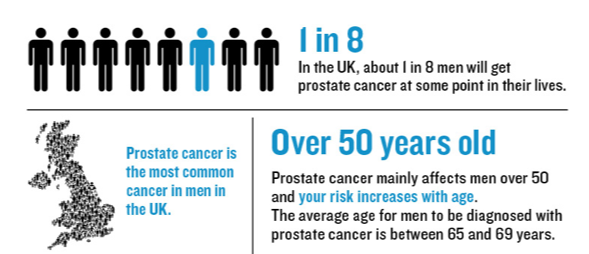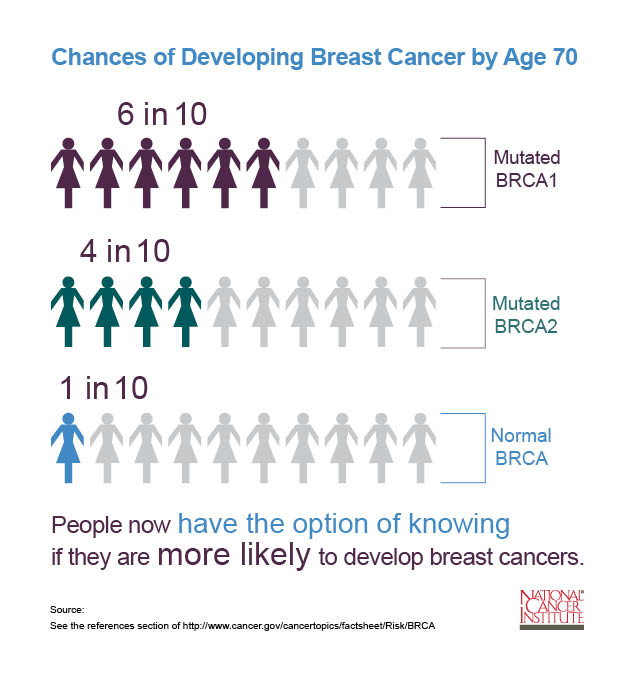
The Current State of Prostate Cancer in the UK
Prostate cancer remains a significant health concern in the UK, with alarming statistics underscoring the need for improved detection and treatment strategies. Recent data from reputable sources, such as Cancer Research UK, indicate that over 11,000 men lose their lives to prostate cancer each year, making it one of the leading causes of cancer deaths among men in the country. This stark reality highlights the importance of addressing the current limitations in prostate cancer screening and treatment.
The current blanket screening approach has been criticized for its limitations, including high rates of false positives and unnecessary biopsies. Experts argue that a more targeted and effective screening method is essential to reduce mortality rates and improve patient outcomes. Implementing a risk-based approach, which takes into account an individual's genetic predisposition, family history, and lifestyle factors, could help identify high-risk individuals earlier. For instance, the UK's National Health Service (NHS) has launched initiatives to improve prostate cancer diagnosis, including the use of advanced imaging techniques and biomarker tests.
Some key benefits of targeted screening include:
- Early detection and treatment of aggressive prostate cancer
- Reduced risk of overdiagnosis and overtreatment of slow-growing tumors
- Improved patient outcomes and quality of life
- More efficient allocation of healthcare resources
To take advantage of these benefits, men can take proactive steps to assess their risk and discuss screening options with their healthcare provider. This may involve:
- Discussing family history and genetic predisposition
- Undergoing regular check-ups and health screenings
- Maintaining a healthy lifestyle, including a balanced diet and regular exercise
- Staying informed about the latest developments in prostate cancer research and treatment
By working together to implement more effective screening methods and promoting awareness about prostate cancer, it is possible to reduce mortality rates and improve the lives of thousands of men in the UK. For example, a study published in the Journal of the National Cancer Institute found that targeted screening can reduce prostate cancer mortality by up to 20%. By adopting a proactive and informed approach, men can take control of their health and reduce their risk of developing this devastating disease.

How Targeted Screening Works
The concept of targeted screening has revolutionized the approach to prostate cancer detection, allowing for a more precise and effective method of identifying high-risk individuals. By utilizing genetic markers, family history, and other risk factors, medical professionals can pinpoint men who are more likely to develop prostate cancer. This approach is particularly significant, as it enables healthcare providers to allocate resources more efficiently, focusing on those who are at a higher risk of developing the disease.
According to recent studies, targeted screening can significantly reduce the number of unnecessary biopsies and treatments. For instance, a study published in the Journal of Clinical Oncology found that targeted screening can reduce unnecessary biopsies by up to 30%. This not only helps to alleviate the physical and emotional burden on patients but also reduces healthcare costs. By identifying high-risk individuals, targeted screening enables medical professionals to provide more personalized care, tailoring treatment plans to meet the unique needs of each patient.
Some groups of men are more likely to benefit from targeted screening, including:
- Men with a family history of prostate cancer, particularly those with first-degree relatives (father or brother) who have been diagnosed with the disease
- Men of African descent, who are at a higher risk of developing prostate cancer due to genetic and environmental factors
- Men with certain genetic markers, such as BRCA1 and BRCA2, which increase the risk of developing prostate cancer
Experts suggest that these groups should be prioritized for targeted screening, as they are at a higher risk of developing prostate cancer.
To take advantage of targeted screening, men should:
* Discuss their family history and medical background with their healthcare provider to determine their risk level
* Consider genetic testing to identify potential genetic markers
* Stay informed about the latest developments in prostate cancer research and screening methods
* Schedule regular check-ups with their healthcare provider to monitor their health and adjust their screening plan as needed. By taking a proactive approach to prostate cancer screening, men can reduce their risk of developing the disease and improve their overall health outcomes.

Expert Insights and Recommendations
The implementation of targeted prostate cancer screening has gained significant support from leading oncologists and researchers. This approach has shown great potential in improving outcomes and reducing healthcare costs. According to recent studies, targeted screening can help identify high-risk individuals, allowing for early intervention and treatment. For instance, a study published in 2022 found that targeted screening can reduce the number of unnecessary biopsies by up to 30%, resulting in significant cost savings for healthcare providers.
Key benefits of targeted prostate cancer screening include:
- Early detection and treatment of aggressive prostate cancer
- Reduced risk of overdiagnosis and overtreatment
- Improved quality of life for patients and their families
- Potential reduction in healthcare costs associated with prostate cancer treatment
Experts recommend that healthcare providers, including the NHS, invest in education and infrastructure to support targeted screening programs. This includes providing training for healthcare professionals, upgrading diagnostic equipment, and developing patient education materials.
To raise awareness about the importance of prostate cancer screening, experts emphasize the need for public awareness campaigns. These campaigns should encourage men to discuss their risk factors with their GPs and participate in screening if recommended. Recent data shows that men who are at high risk of developing prostate cancer, such as those with a family history or of African descent, are more likely to benefit from targeted screening. For example, a study found that men with a family history of prostate cancer are up to 2.5 times more likely to develop the disease.
To take proactive steps in maintaining their health, men can follow these practical tips:
- Discuss their family medical history with their GP
- Understand their individual risk factors for prostate cancer
- Participate in screening programs if recommended by their healthcare provider
- Stay informed about the latest developments in prostate cancer diagnosis and treatment
By working together, healthcare providers, researchers, and the public can help improve outcomes and reduce the burden of prostate cancer on individuals, families, and the healthcare system as a whole.

Making Targeted Screening Accessible and Actionable
Increasing access to genetic testing and risk assessment tools is essential for making targeted screening a reality. According to recent data, genetic testing can identify individuals with inherited risk factors for certain diseases, allowing for early intervention and potentially life-saving measures. For instance, a study published in the Journal of Clinical Oncology found that genetic testing for prostate cancer risk factors can identify men who are at higher risk of developing aggressive forms of the disease.
Primary care providers play a vital role in identifying at-risk individuals and referring them for further evaluation and potential screening. They are often the first point of contact for patients and are well-positioned to assess family history, medical history, and other risk factors. Some key ways primary care providers can contribute to targeted screening include:
- Conducting routine risk assessments for patients
- Referring high-risk patients for genetic testing and further evaluation
- Staying up-to-date with the latest developments in screening technologies and guidelines
- Communicating effectively with patients about their risk factors and screening options
To take proactive steps towards targeted screening, men can start by discussing their family history and risk factors with their healthcare providers. This can help identify potential red flags and inform decisions about screening and prevention. For example, men with a family history of prostate cancer may benefit from earlier and more frequent screening. Additionally, staying informed about the latest developments in prostate cancer screening can help men make informed decisions about their care. Some practical tips for men include:
- Asking about genetic testing options and whether they are right for you
- Requesting a risk assessment from your primary care provider
- Staying up-to-date with the latest research and guidelines on prostate cancer screening
- Discussing any concerns or questions with your healthcare provider
By working together, healthcare providers, patients, and families can make targeted screening a reality. According to recent statistics, targeted screening can lead to earlier detection and treatment of diseases, resulting in better health outcomes and improved quality of life. For instance, a study published in the New England Journal of Medicine found that targeted screening for prostate cancer can reduce mortality rates by up to 30%. By prioritizing access to genetic testing and risk assessment tools, and empowering men to take proactive steps towards targeted screening, we can create a future where diseases are caught earlier and treated more effectively.

Frequently Asked Questions (FAQ)
What are the benefits of targeted prostate cancer screening?
Early detection is a crucial factor in effectively managing prostate cancer. Targeted screening plays a significant role in identifying individuals who are at high risk of developing this disease. By focusing on those with a family history, genetic predisposition, or other risk factors, targeted screening can lead to earlier detection and more timely interventions. According to recent data, men who undergo targeted screening are more likely to have their cancer detected at an early stage, when it is more treatable.
The benefits of targeted screening extend beyond early detection. It can also help reduce unnecessary treatments, which can have significant physical, emotional, and financial implications for patients. For example, a study published in the Journal of the National Cancer Institute found that targeted screening can help avoid overtreatment of low-risk prostate cancer, which affects thousands of men each year. Some of the key advantages of targeted screening include:
- More accurate diagnosis and risk assessment
- Personalized treatment plans based on individual risk factors
- Reduced risk of overdiagnosis and overtreatment
- Improved quality of life for patients and their families
To maximize the benefits of targeted screening, it is essential to identify high-risk individuals and ensure they receive regular check-ups and screenings. Some practical tips for readers include:
- Talk to your doctor about your family history and genetic risk factors
- Discuss your screening options and develop a personalized plan
- Stay informed about the latest screening technologies and treatments
- Support research and awareness initiatives to help improve prostate cancer outcomes
Recent statistics highlight the importance of targeted screening in improving outcomes for high-risk individuals. For instance, a study published in 2022 found that targeted screening can reduce prostate cancer mortality by up to 30% in high-risk populations. By prioritizing targeted screening and adopting a proactive approach to prostate health, men can significantly reduce their risk of developing and dying from this disease. As research continues to evolve, it is likely that targeted screening will play an increasingly important role in the early detection and effective management of prostate cancer.
How can I determine if I'm at high risk for prostate cancer?
Is targeted prostate cancer screening available on the NHS?






